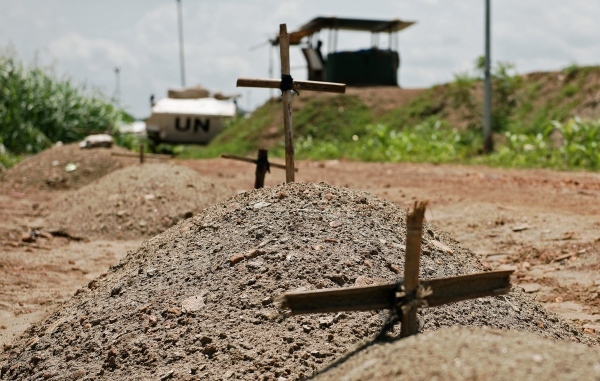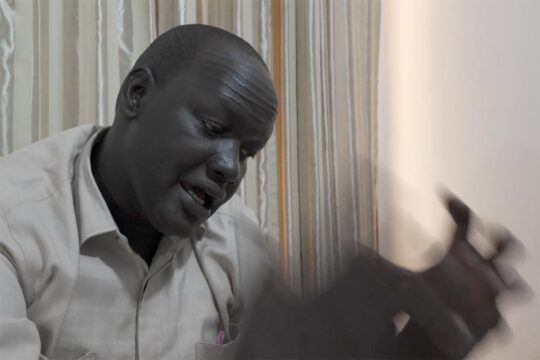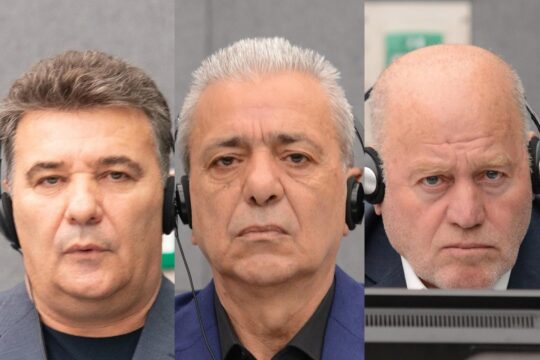In South Sudan, a fragile peace deal signed in August 2015 looks in doubt as fighting again erupted in Juba this July and Vice-President Riek Machar fled the capital. Many civilians have not only died but also been the target of serious human rights abuses. The US-based Enough Project recently published a report looking at some of the underlying causes of the conflict in South Sudan. In this interview, report author Brian Adeba tells JusticeInfo there will be no end to impunity unless the international community ensures the peace deal is applied.
South Sudan, the world’s oil-rich newest country, has hardly ever known peace. With a population of some 11.3 million, it is one of the world’s poorest countries, characterized by “ethnic violence, high levels of poverty and exclusion, low literacy levels, border disputes, gender inequality, limited access to basic services, poor infrastructure, and weak institutions”, according to the UN Development Programme. As part of Sudan, it was dominated by the north, with which it fought for some 22 years until a peace agreement was reached in 2005. This paved the way for South Sudan’s independence in 2011 after a popular referendum.
Hopes were high after independence, but the new Republic of South Sudan descended into civil war in December 2013, fuelled by rivalry between President Salva Kiir, an ethnic Dinka, and Vice-President Riek Machar, an ethnic Nuer. A peace deal reached in August 2015 led, after much foot-dragging, to the formation of a transition government in April this year, but fighting again erupted in July in the capital Juba. Civilians have not only died but also been the target of serious human rights abuses. A 12,000-strong UN mission in South Sudan has seemed relatively powerless to stop abuses against civilians, and some 300,000 have fled to Uganda since July.
The peace agreement calls for fundamental institutional reforms and transitional justice measures, including a hybrid special court, but these have not been implemented. So can peace in South Sudan be saved? JusticeInfo spoke to Brian Adeba of US-based NGO the Enough Project, who recently authored a report on South Sudan:
JusticeInfo: The Enough Project recently launched a petition urging the United States government to do more to help South Sudan. What do you think the US should do?
BA: Being the most powerful country in the world, the US has a lot of facilities and resources at its disposal that could counter impunity in South Sudan. For instance, central to this conflict is the looting of State coffers, looting of the resources of the State, money going out, and, as we mentioned in the report, President Salva Kiir himself has said that the country has lost some 4 billion dollars. When you read the report you see that there’s a constant bleeding of money from the State. Now where does this money go? This money is taken by the political elite and ferried out of the country, mostly to neighbouring countries where it is stored and invested in banks. In most cases it leaves the country in hard currency, which is the US dollar. Now any transaction in US dollars can at a certain point or a certain time be traced to New York. So the very fact that they are using the US dollar is an indication that the US can have some jurisdiction over the transfer and the facilitation of the movement of this money in the global financial system. […] So we could help, in one way or another, to stop the illicit movement of money from South Sudan. Another thing the US can do is targeted sanctions on individuals, travel bans on the facilitators, to send the message that impunity has a cost. This is a whole comprehensive objective that needs to bring on board partners in the region as well.
JusticeInfo: The UN High Commissioner for Human Rights this week accused government soldiers of atrocities against civilians, including gang rapes and extrajudicial executions. How do you see prospects for justice for human rights abuses in South Sudan?
BA: The peace agreement is very clear that there is going to be a hybrid court to try perpetrators of these egregious crimes that are happening in South Sudan. I think it is very important to ensure that the peace agreement survives. Not only should we ensure that it engages in reforming institutions of governance but that the hybrid court is set up to try these individuals. At the same time, the targeted sanctions we are calling for should not be focusing only on financial crimes but leaders who have committed these egregious human rights abuses. Already there are people on the US list of designated individuals who have committed these crimes in South Sudan, and the list needs to be expanded.
JusticeInfo: The African Union has backed the idea of sending an additional peacekeeping force to South Sudan, and it was reported on Saturday that the government has now agreed. Would such a force help, do you think?
BA: I think it’s a very welcome development. I think the parties to the conflict, if left to their own devices, have no intention of implementing the peace agreement. The recent collapse of the security arrangements that resulted in Riek Machar’s exit from Juba is an illustration of the intransigence of the leaders. So the African Union intervention force is a very welcome development. I think what the international community should do now is step forward with the required logistics and funding. So that should happen, and a clear refining of its mandate should ensue, to ensure that it protects civilians, that it accesses the buffer zone and ultimately strengthens the peace agreement. It should not just be limited to Juba. Juba is not the only place where the peace agreement can unravel, so it should look at playing a role in fostering peace across the country.
JusticeInfo: As you have said, the political actors in South Sudan do not seem to have their hearts in the peace agreement. So if peace is forced on them, surely it will not last?
BA: There is a reluctance from the partners. But it is not up to them. We should not allow their narrow parochial interests to triumph over the majority of the South Sudanese community. So if a force is needed to make sure the peace agreement is implemented for the benefit of the people of South Sudan rather than the interests of these two leaders, then I think it’s a positive thing and it should be applied. The conflict that we have in South Sudan is because its institutions have failed to offer the checks and balances that would have countered the excesses of the political elite. Going forward, what we really need in South Sudan is a reform of the system, we need the institutions empowered. It is a top priority, because without any reform of the institutions we will see the same scenarios repeated.







